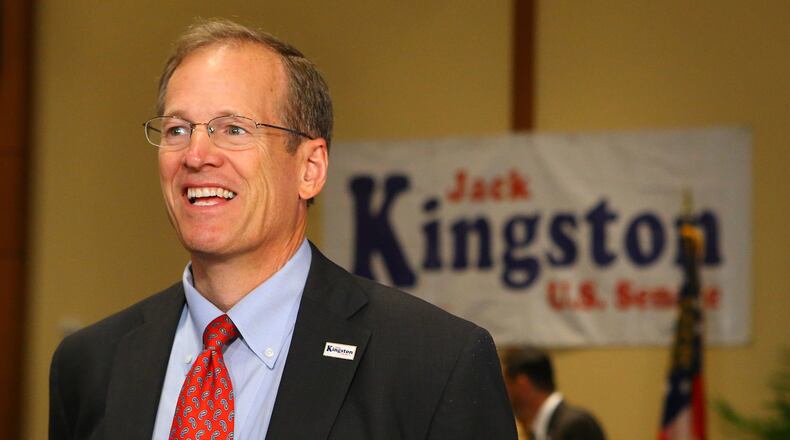“I remember years ago looking at a CBO report that in 1964 predicted that Medicare would cost $9 billion 10 years later. And I think it was already over $100 billion at that point.”
— Former U.S. Rep. Jack Kingston in a March 12 CNN interview
Supporters of the House GOP’s proposal to overhaul the health care system are throwing cold water on a report from the nonpartisan Congressional Budget Office that 24 million people could lose health insurance if the plan passes.
Former Republican U.S. Rep. Jack Kingston, who represented Savannah, took to CNN to criticize the CBO’s prognosticating skills.
“Well, a CBO in 2010 said that 24 million people would be covered by exchanges by now under Obamacare. That number is 10 million. They were 14 million people off,” Kingston said. “I remember years ago looking at the CBO report that in 1964, it was predicted that Medicare would cost $9 billion 10 years later. And I think it was already over $100 billion at that point.”
PolitiFact Georgia wanted to fact-check Kingston’s claim that CBO was off on its 1964 Medicare prediction. There’s just one problem: The CBO wasn’t formed until 1974.
According to the agency’s own history, the CBO began operating on Feb. 24, 1975, with Alice Rivlin appointed as the first director. Its mission was and is to provide carefully researched, independent budget and economic information to Congress.
The CBO was created by the Congressional Budget and Impoundment Control Act of 1974, which was sparked by conflict between the legislative and executive branches. Back then, members of Congress objected to President Richard Nixon’s threats of impoundment. In this case, Nixon had refused to spend money on projects he opposed, even though Congress had appropriated the money.
The 1974 law affirmed Congress’ constitutional control over the budget by establishing new procedures for controlling impoundments. The law also created new legislative institutions to implement the new congressional budget process: the House and Senate Budget Committees to oversee execution of the budget process, and the Congressional Budget Office to provide the budget committees and Congress with objective, impartial information about budgetary and economic issues.
So Kingston was wrong about the CBO.
In response to our questions, Kingston acknowledged the error but said he was thinking of a different source. He provided a 2009 article from the Washington Times about the U.S. health plans having a history of cost overruns. “In 1965, the House Ways and Means Committee estimated that the hospital insurance program of Medicare — the federal health care program for the elderly and disabled — would cost $9 billion by 1990. The actual cost that year was $67 billion,” the article said.
A 1965 New York Times article explained the new Medicare plan. The new version would include doctors’ fees and drugs, as well as hospitalization.
The Washington Post Fact Checker has looked in depth at the old estimates about Medicare. It found that Medicare’s costs were underestimated back in the 1960s, but that nominal dollar figures aren’t the best way to look at the program, due to inflation in the 1970s.
Our ruling
Kingston said, “I remember years ago looking at a CBO report that in 1964 predicted that Medicare would cost $9 billion 10 years later. And I think it was already over $100 billion.” But the CBO wasn’t established until 1974.
There were estimates, but they were actually made by the House Ways and Means Committee. Comparing the original figures to today is more complicated than just citing the numbers. And the sources for the figures — the CBO vs. a House committee — are very different. When we asked about the misstatement, Kingston acknowledged the error.
We rate this claim False.
About the Author
Keep Reading
The Latest
Featured



